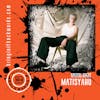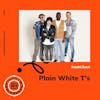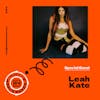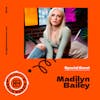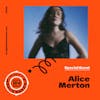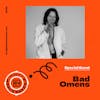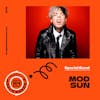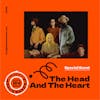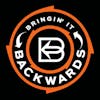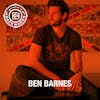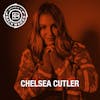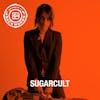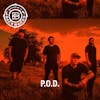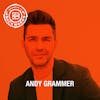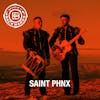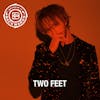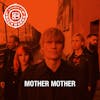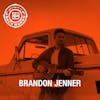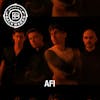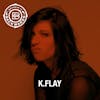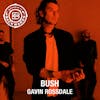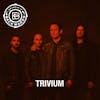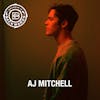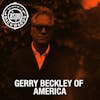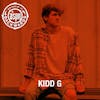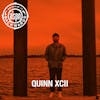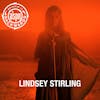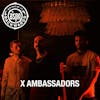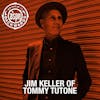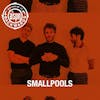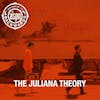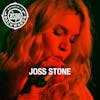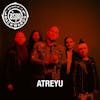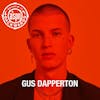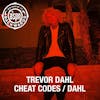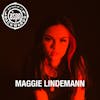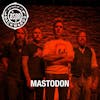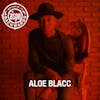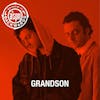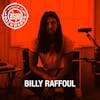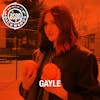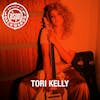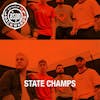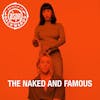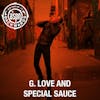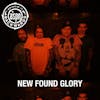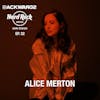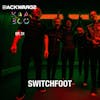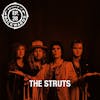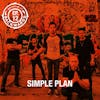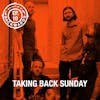Interview with Haley Smalls
We had the pleasure of interviewing Haley Smalls over Zoom video!
Toronto based singer-songwriter Haley Smalls recently release her latest single “Do Better . This single release follows a string of consistent singles over the last year from Haley,...
We had the pleasure of interviewing Haley Smalls over Zoom video!
Toronto based singer-songwriter Haley Smalls recently release her latest single “Do Better . This single release follows a string of consistent singles over the last year from Haley, including Run-DMC influence track “Bass” that premiered with Hip-HopVibe & Rolling Out, as well as
Summer 2021 buzz track “I Do.”.
Haley’s single “Do Better” is the build up to her currently untitled 5th project set for release in 2022. Lyrically, the core of the project centers around love: love of self, love of others, and the love of success and the money it brings. While the style of the project is rooted in R&B/Hip Hop don’t be surprised to hear a country or rock influence come through as Haley works to make her sound uniquely diverse creating something that can be received by all, no matter their background or their age. Now, after inking a deal with industry veterans Jimmy Maynes & JoJo Brim at V Nation, along with her long-time management team from Ludacris’ Ebony Son Mgt and music producers Poke and Tone from Trackmasters, Haley Smalls finally has the right team in place to release her next project in 2022.
Haley started her musical journey at a young age when her parents recognized her unique talents and signed her up for singing lessons. Haley started booking studio time at age twelve, writing songs and working with producers in the U.S. and the UK. After years of grinding, it all came to fruition when she met her producer in 2013, the Grammy nominated multi-Platinum Megaman.
Her 2015 debut This Is Me was a culmination of Haley coming into her own and shaping her identity. Following This Is Me Haley released a series of noteworthy projects, including 2017’s Heart of Gold, 2018’s The Cure II, and 2019’s Summer Nights.
She continued her momentum through 2020, releasing a series of tracks well into 2021. This next phase for Haley Smalls is unstoppable now that she finally has the right team around her, following her recent signing to V Nation. Sas well as updates on her upcoming project due out later this year.
We want to hear from you! Please email Tera@BringinitBackwards.com.
www.BringinitBackwards.com
#podcast #interview #bringinbackpod #HaleySmalls #IDo #DoBetter #musicinterview #MusicPodcast #NewMusic #zoom
Listen & Subscribe to BiB
https://www.bringinitbackwards.com/follow/
Follow our podcast on Instagram and Twitter!
https://www.facebook.com/groups/bringinbackpod
We'd love to see you join our BiB Facebook Group.
Hello. It is Adam. Welcome back to bringing it backwards. A podcast where both legendary and rising artists tell their own personal stories of how they achieve stardom. On this episode, we had a chance to chat with Haley smalls over zoom video. Haley was born and raised in Toronto, Canada, and she talks about how she got into music. Started singing at a very, very early age. She had very supportive parents who put her in vocal lessons. She ended up making it into the studio at 10 years old. I believe the first thing she recorded was a version of oh Canada and the us national Anthem, which landed her a gig. I think at 11, singing at the Toronto blue Jays stadium, she got to sing both the us national Anthem and Oak Canada. 4 (2m 12s): From there. She worked with numerous different managers and producers. She kind of got herself in some, some bad deals with management and contracts at a young age. She finally got all out of that around 18. She met her producer that she still works with to this day, around 2014. Prior to meeting this producer, she had been doing cover songs and putting stuff up on YouTube, and she had a bit of a following there. But when she met this producer is when she started to release her own music and made a name for herself as Haley smalls. We talk about our viral moment. She had on Facebook and all about her brand new song called do something. 4 (2m 52s): You can watch the interview with Haley smalls on our Facebook page and YouTube channel at bringing it backwards. It'd be awesome if you subscribe to our channel like us on Facebook and follow us on Instagram, Twitter, and Tik TOK, add bringing back pod. And if you have a second and you're listening to this, either on Spotify, apple podcasts, Google podcasts, it'd be amazing if you follow us there as well, and hook us up with a five-star review. 5 (3m 18s): We'd appreciate your support. If you follow and subscribe to our podcasts, wherever you listen to podcasts, 4 (3m 24s): We're bringing it backwards with Haley smalls. This is about you and your journey of music and how you got to where you are now. And we'll talk about the new music you've been putting out. Cool. Cool. First off, talk to me about where were you born and raised? 6 (3m 40s): I was born and raised in Toronto, Canada. So yeah, I grew up here all my life lived here all my life 4 (3m 47s): In Toronto. 6 (3m 48s): Yeah. I'm still here. 4 (3m 50s): What's it like growing up there? 6 (3m 53s): Oh, it was really dope. You know, I love the city and I think as I've gotten older and traveled outside of the city, I've grown more, more and more of an appreciation for it. And just the different mixture of culture is in, we've got great food here and, you know, it's, it's really nice. They keep it clean and you know, it's, it's, it's a really nice cultural, culturally diverse place to live. 4 (4m 19s): Yeah. It's big music too. There's a lot of, a lot of bands out of Toronto. 6 (4m 23s): Oh yeah. Yeah. Definitely. Definitely a growing music scene, you know, unfortunately we don't have that many platforms to showcase it here, but I can think that, you know, in the next and the next decade, hopefully that will build over time. 4 (4m 37s): Yeah. Well, I mean, Canada has an amazing thing through the government, right. For, for artists like they'll help kind of sponsor you so to speak. Right. They'll, they'll help kind of set up that, which I think is amazing. And I've talked a lot of people that I've talked to people from, from Toronto bands out of Toronto. It's interesting. Cause they're like, yeah. Cause they wanna like, you know, try to compete with the U S and I'm like looking at the charts, I'm like, huh, like ha like all the best biggest artists right now, at least are all, a lot of them are from out of Canada. It's crazy. You have Drake and, you know, be brown and the weekend like, like so much talent coming out of Canada. 6 (5m 15s): Yeah. It's true. You know, it's, it's, it's crazy how, you know, we've been able to make a lot of noise just by, you know, like I said, a lack of platforms and stuff like that, but it, at the same time, you know, it, it, unfortunately still to this day, a lot of artists have to go outside of Canada to get the, you know, the attention first and then they get more from the country. And even the, you know, the system that they have, that's supposed to support a lot of bands. It does, but it is kind of limited to a certain demographic of, of artists. Yeah. And it, you know, it's not something that it's not something that anybody likes to talk about, but it's real. 6 (6m 2s): Yeah. A lot of the urban apps, a lot of the urban acts really don't get the same kind of support. So it's really limited to, you know, a lot of full acts and, you know, still like the, more of the alternative and rock type bands, they haven't really, they haven't really moved with the way that the culture has been growing. Like they're not, they're not growing with it, unfortunately. So myself included and a lot of artists that I know have tried so hard to get, you know, to get help and have been continually denied despite there being, you know, artists in other demographics or other types of genres of music that don't even have the same kind of accolades. 6 (6m 44s): Like I've tried to get grants many, many times and been rejected over and over. Yeah. 4 (6m 50s): Yeah. I would imagine like, yeah, cause I've talked to people they're like, yeah, it's amazing. Like you just apply for these grants and then they'll help you fund a record. But then it's like, well, how many people are actually applying for these grants? I would think they only select a certain amount. And it sounds like, like you're, you're saying that it's not, it's not as easy as it may make it sound like it is. 6 (7m 11s): Yeah. It's easy for, it's easy for certain, for certain genres, definitely for them. Like I do know, I do know a lot of people have been successful in getting it, but if you kind of look at the different, the different John Rose that are successful and unsuccessful, you can see a pattern. 4 (7m 24s): Ah, okay. I see. I see. That's unfortunate. Well, but I mean you're here and you're doing awesome. So who cares about the grades? 6 (7m 34s): But 4 (7m 36s): Anyway, well, that's awesome. So talk to me about how you got into music originally. 6 (7m 42s): Well, for me, you know, I was singing since I was like really early on, like since I could, before I can remember. So my parents were aware of me, like singing us, like a very, very young child. And so, you know, I guess it was just something that I liked to do as like a pastime when I was young, you know, the same way that other children like to play with toys and stuff. And so, Yeah, it was like, I, you know, people say like, when did you decide to do music? And I, I feel like I, I didn't ever have like a moment where I was like, I want to do this. I feel like I was kind of like born into it and always wanted to do it since I was a child that even before I knew what being a singer even really was, I just loved singing to music. 6 (8m 23s): And so I think over time, my parents kind of started to recognize that I could saying, and you know, and then I had somewhat of a gift in it very young. And so, you know, they just supported me in, you know, helping me find different opportunities to be able to do that, whether it be at school or whether it be with different, you know, I started working with different producers and stuff like that. I got in the studio very early, like around 11, 12 years old, so. Okay. 4 (8m 51s): Wow. That's cool that your parents were that supportive of it. Cause a lot of parents would be like, yeah, okay. We'll throw you in singing lessons, but then we're going to have you try 50 million other things before, you know, you land on something. But the fact that they took that right away and embraced it, I think that's so cool. 6 (9m 6s): Yeah. It was really, it was definitely a blessing. I was fortunate because the, I do know a lot of people who have struggled with, you know, with getting support at a young age. And so, you know, they had a lot of different hurdles to jump over just to get support in other places. So, 4 (9m 21s): So did you, did you start with, you said obviously singing, were you in like the chorus or choir or did you do like vocal lessons? Like, I mean to be in the studio at 11, like what was the journey to two 11 to getting inside of an actual studio? 6 (9m 37s): So I started singing at, I started singing at like school assemblies. I would like, you know, do at first I think I had like a solo in the choir and then when the music teacher recognized that, you know, I could sing, then she was like, okay, you can do like, you know, if you want to sing a song for the assembly or for the talent show, then I would start doing that. I did sing for a Boston blue Jays game, which was Well, yeah, that was when I was, I think it was like eight or nine at the time. 4 (10m 7s): Really. Did you do like the national Anthem or something? 6 (10m 10s): Yeah, it was the U S and Canada Canadian national anthems. 4 (10m 14s): Wow. By yourself. 6 (10m 16s): Yeah. 4 (10m 17s): Oh my goodness. That's incredible. 6 (10m 19s): Yeah. Yeah. So that was like a big moment for me back then. 4 (10m 22s): Yeah. That's still, that's still a big moment. Right. I mean, to be able to go out there and do that, was it something that you I'm sure you had a little it audition for that? 6 (10m 32s): I think, you know, like I said, like my parents were like always like networking for me. So, you know, they were like always like talking to people and like, you know, my daughter can sing and I don't know, like, you know, things just were aligning and you know, I was, they were, I think they had some sort of connection with a producer that had a connection with the musical director or that was handling, whoever's saying the national Anthem. Yeah. So I recorded a version of it at a studio and then they sent it in and so they said, yeah, like, you know, bring her in, have her sing the national Anthem. So yeah, 4 (11m 11s): I will say that Canada has the, the superior national Anthem, like the old Canada is like the far, far the best national Anthem. I think if you were ranking nationally, I think it's a cool, 6 (11m 25s): I mean, we grew up with it. Right. So I think we're like immune to even like, That's funny. 4 (11m 34s): Yeah. Yeah. I think it's, I think it's a grand national Anthem. So you recorded that at eight and then did that, or were you at 11 when you did the national Anthem? 6 (11m 44s): I think I was about, I could have been 10. It was like in between the ages of eight and 10 years old. I still have pictures and some videos from that, 4 (11m 52s): From that. Awesome. 6 (11m 54s): Yeah. So I recorded it and then they sent it in 2 (11m 57s): Facebook safety teams protect billions of people each month. They lead the industry in stopping bad actors online. That's because they've invested more than $13 billion in the last five years, quadrupling their safety and security teams to 40,000 people and investing in industry leading AI technology to enhance safety on their platforms. It's working over the last several months. They've taken action on 1.7 billion fake accounts, 51.7 million violent and graphic posts. 62 million explicit adult posts, 9.3 million drugs and firearms sales posts, but working to reduce harmful and elicit content on their platforms is never done. 2 (12m 43s): Keeping your feeds safe will continue to be everyone's priority at Facebook. Learn more about how they're helping people connect and share safely at about.fb.com/safety. Facebook has invested $13 billion in teams and technology to enhance safety over the last five years. Over the last few months, they've taken down 1.7 billion fake accounts. Learn more about their ongoing work at about.fb.com/safety. 7 (13m 13s): When so much of life is about the big moments, it's the details in the all new 2022 grand wagon air that makes the small moments truly special. Take joy in American premium design with available Walnut trips and technology like the available 23 speaker Macintosh reference entertainment system. And with seating for up to eight, no detail is overlooked because it's the details that make every journey grand, the grand wagon here, grand adventures return, Ragen air is a registered trademark of FCA us, LLC. 6 (13m 43s): And, and yeah, and I, and I did that. And then I started again through just like my parents networking. I ended up meeting a producer in Toronto and that was the first time I really started actually getting in the studio and I started writing original music. 4 (14m 0s): So like that early on. Yeah. 6 (14m 5s): So I, I recorded, my first song was called so happy and it was like, I still have that recording. 4 (14m 11s): That's cool. 6 (14m 12s): Yeah. And so, yeah, it was just, you know, that was where it started. And then it kind of just continued in that, in that wave of me just working with different producers when I was about 13, 14, I signed with a management company that was based in the U S and these producers that were actually based in London and like Europe, they were coming to Toronto to work with me on like a yearly basis. And so we were just like, I was in the studio with writers and recording and the whole thing. And, you know, that was, that was a long experience. 6 (14m 52s): I had a lot of experiences being in, not so good contracts. So, you know, it was, it was a learning experience and I learned a lot, but it wasn't, it wasn't conducive to achieving what I was trying to achieve very young, which was, I was, you know, I was trying to become a professional recording artist and, you know, and, and, and be, and be known worldwide. But the contracts that I was trapping myself in those times and the people that I was working with, you know, I I'm sure they had for the most part good intentions, but it just wasn't, it wasn't working. And I didn't know what it was. I was really young and I think a lot of like young artists, especially female young artists, they struggle with finding who they are and finding their sound. 6 (15m 38s): And when you're that young, it's really hard to know to write. So you have a lot of people that are trying to put a sound on you and there is no identity. And so it be very, it can be very tough. 4 (15m 49s): Yeah. I mean, I think it's hard for anybody, no matter what age it is, if you're trying to do this to like really find your sound right. Or I come from radio, I was on the radio for a long time and before doing this, but like, and that was the thing, like people at, like when I got into it, people would always say like, you just be yourself, just be you. And it's like, and that was the hardest thing ever. Like, how do I be me? Like, I don't understand, like, I'm trying to, cause you're just trying to either mimic what other people are doing or kind of where it's like, well, you are the best you like that person is doing the best of them. And you're not gonna be able to overdo with them. You can't be more them than they are, whatever, which I think is interesting. And it's a little more so like, especially if you're young and you have these people that are professionals in the industry, probably telling you like, oh, you know what, Haley, this is the sound you need, you need to sound like this. 4 (16m 40s): So we're going to write a song that sounds like this. And then that's going to be your sound, 6 (16m 44s): Right? Yes. Yeah. That was exactly what I was going through. And, you know, I remember at the time I really wanted to do R and B, but the, the producers in the management company that I was working with at the time, they wanted me to go more and like a, like a pop kind of almost like dance, pop route. And that just, wasn't what I was feeling at the time. And so that was a struggle. And, and, you know, it's, it's funny because I was, you know, they were trying to get me a deal. And that was, I think right on the brink when the music industry just started changing completely because streaming was starting to, well, no streaming hadn't started, but it was the downloading. Like you remember Limewire, Napster Started coming in. And so like, you know, record sales were like plummeting because nobody wanted to buy albums anymore. 6 (17m 28s): Nobody wanted to buy music anymore because they could just download it for free. And so a lot of execs got fired and that was right around the time when they were trying to get me a deal. And we had spent like, you know, about a year or two in the studio recording all this music in hopes of them getting me signed and, you know, and so that was just like, that was like a moment. Everything just went into pause. And then I was stuck in limbo in this contract and nothing was happening. And it was like a six-year contract that I was, Yeah, it was, it was crazy. And, you know, and it, it, it wasn't until, so I, I got into that contract about, at, about, I think 14 and it wasn't until I was 18 that I actually finally spoke to a lawyer who looked at my contract and realized that it wasn't a legal contract 4 (18m 17s): Really. Oh my gosh. Yeah. That's wow. Okay. So you did four more years of this when you, when you could have probably been out of it, right? 6 (18m 26s): Yeah. I definitely could have. I definitely could have, they didn't take the right. They didn't take the right legal steps in order to be able to sign an artist of my age. At the time, I was a minor To be able to sign me for that many years, they would have had to do certain things that they didn't do legally, which made the contract void. 4 (18m 44s): Interesting. Well, I'm sure that's hard, especially for your, your parents trying to be supportive of you. And then they, I don't, I don't do they come from a musical background at all or industry background? 6 (18m 55s): No, they don't. They were just, you know, they, I think, I don't know. I just, somehow I came into this life with very supportive parents, not age for music, but you know, the, the double-edged sword with that is that sometimes when you have parents who are very supportive, they can always, they can also be very heavy handedly involved. And so what happens is, as you get older and you start to realize certain things about yourself and certain decisions that you want to make, it becomes a conflict because your parents are so involved in your career and all the decisions that you're making, but you start to learn things about the music industry and you know, how things work. Especially after me being in that, wasn't the only bad contract that was in. 6 (19m 36s): So me being in multiple bad contracts, being locked and stuck constantly, I started to realize when I, you know, got older, I was like, this is not the way to go. And I started meeting people like my producer that I work with now who was starting to educate me on how to, you know, move in the music industry and still keep my, you know, my identity still be able to understand, you know, that I don't have to just jump into a contract. I can actually build my specialty in this climate, right. Because independent artists have so much power now. I mean, we can just upload our music. We can literally just distribute our music. 6 (20m 17s): There's two core there's district kid. There's all these distribution companies and, you know, the ability to create music and put it out and even market it yourself is there. And so when I started getting educated on that, I started to kind of feel like I needed to take a whole different direction in music. And because you know, that wasn't a hundred percent understood on that side. It created a lot of conflict. And so I had to make a decision to kind of sever myself from that move on, you know, to making decisions myself that work. But for me, 4 (20m 53s): Sure. I mean, just think of how much the industry has changed within the past, like year and a half. I mean, once everyone's inside, it's like, okay, well, there's not touring isn't as prevalent anymore. And there's salt. And then like everyone's at home on Tik TOK. And then that becomes like this thing where you could basically go viral and have a song start charting off of a sound that somebody ends up, you know, repeatedly using. And it's, it's just crazy to think that nowadays I love what you said, where you can really make it as an independent artist. I mean, you can spend a few hundred bucks on a microphone and, you know, buy a loop off YouTube or something and you could write a song and put it out without spending a hundred grand to rent a studio out and hire these people to put it together for you. 4 (21m 38s): And you'll hear these stories about kids that will just make songs and throw up on SoundCloud or whatever. It'll find its way onto TechTalk and they'll get this huge fan base. And then the major labels are like, oh, Hey, I see that you have a million listens on this song. What do you got going on? Like, and at this point you can kind of be like, well, let me weigh my options here instead of feeling like obligated to sign or whatever. Sorry, go ahead. 6 (22m 2s): Exactly. Yeah, no, that's true. It's still true. It's it's it's that puts the power in the artist's hands. And before it was kind of like, you know, you get signed to these labels and they call all the shots and they own all your masters. They own all your rights to your music, you know? So you're basically almost like a slave for them. You don't, you don't, you know, you, you get the fame, right. But you know, this is why there's so much history of so many artists getting screwed over by labels. And, you know, that's just the business. I mean, if you don't know the business, you're going to get screwed. It doesn't matter what business is. And, and the music industry is no different than that. Right? So I think that now more than ever, we actually have the ability to understand our industry and to be able to build something at least so that when you do, you know, start having conversations with labels, you have a, you have groundwork. 6 (22m 54s): And so you have leverage and you can, you can really say like, you know, these are, these are the things that are important to me. And if I don't get those I'm not signing. And the thing is is that when you're able to make a living off of your music, you don't have to be desperate to sign a deal as much as you might want to be. You know, the next big superstar, you don't have to feel like, okay, this is my only chance, keep building your fan base. And these labels will come back, you know, because they, they don't want to miss out on the next, you know, the next big viral artists or the next artist that has the big fan base. Right? So sometimes they'll, they'll back down. If it's not what, you know, like if you're asking for things that they're not ready to give, but if you keep building yourself, then you know, the inevitable is, is bound to happen. 6 (23m 36s): So 4 (23m 37s): Well, yeah. I mean, I'm sure there's gotta be thousands upon thousands of stories of bands that are massive. Now you got turned down or they're like, you know, a bunch of X label or a, and R person was like, oh, you guys don't have it. And then sure enough, they're, you know, selling Grammys or, you know, whatever touring the world, which is so it's. So it's all I've heard. A lot of people say it just takes one. Yes. And it depends on who that person is. And if they want to support you, or if you have the song or it's going to happen, I mean, it's, it's just wild, especially nowadays, like you said, the leverage is in your hands. Now, if you can build the community yourself, then it's, we'll look at instead of what can you do for me? 4 (24m 18s): It's like, or, I mean, what 2 (24m 19s): Facebook has invested $13 billion in teams and technology to enhance safety over the last five years. Over the last few months, they've taken down 1.7 billion fake accounts. Learn more about their ongoing work at about.fb.com/safety. Facebook has invested $13 billion in teams and technology to enhance safety over the last five years. Over the last few months, they've taken down 1.7 billion fake accounts. Learn more about their ongoing work@aboutthatfb.com slash safety. Facebook has invested $13 billion in teams and technology to enhance safety over the last five years. Over the last few months, they've taken down 1.7 billion fake accounts. 2 (25m 1s): Learn more about their ongoing work@aboutthatfb.com slash safety. 4 (25m 5s): Yeah. What can I do 6 (25m 7s): For you 4 (25m 8s): Right here? Wait a minute. Oh yeah. It's like, they'll come to you and say, Hey, you know, we're like, yeah, well, I've already done all this by myself. So how are you going to help that? How are you going to leverage me? Right. Exactly. Exactly. Well, that's so fascinating that you've been doing this for so long. I mean, it's unfortunate to hear about the struggles with obviously the record contracts and all of that, but it's like, I was trying to say about like your parents, like they aren't in the industry, so they're probably like, oh, well, helping her sign this deal. Like, cause in my mind, if I didn't know anything about it, I'd be like, okay, record, deal means success and something happening. Right. It's like, well, I don't know how to do this, but these people obviously do. 4 (25m 50s): So if I give my daughter the ability to do this, then hopefully it will, it will work out. But I mean, it doesn't obviously always go that smooth smoothly. So We'll tell, okay. So you're obviously in these bad deals. So what happens, like how do you break out of that and how do you decide, like, you know, I'm not doing this pop route. I want to do the R B route. I want to, I'm going to be, this is like me and my project. And how do you start over? 6 (26m 20s): Well, after I got out of that first contract, I worked with a couple of different people and, you know, I, again, it was kind of like a, a repeat of not, not necessarily a genre issue at that point, but Like, it was more so now whether it's the right people to work with, you know, and again, I think that the blame doesn't really fall on anybody. It's more so just that I was really struggling know who I was and how to maneuver in the music industry, because I just didn't know. You know, so, you know, I, I definitely, I made a lot of moves that were not beneficial for, for a while, like over and over and over again, trying to get it right. 6 (27m 1s): And then it wasn't until, you know, I, I met my producer in 2014 and, you know, we just had some conversations because at that time there was actually a deal that I had on the table and it was a crappy deal, you know, and there were people that were around me and my circle that were pushing me to sign. And I didn't feel like I should, because I felt like it was just going to go into the same exact pattern. And at that point there was a lot of things that had happened that were just starting to make me feel like, I don't know, is the music industry, what I thought it was because I was just experiencing a lot of really dark things. You know, like I, I had met a lot of people in the music industry that had done big things and, you know, produced records on like my favorite artists and wrote songs for some of my favorite artists. 6 (27m 50s): And, you know, as a young artist and being naive because you're young and you've never been in this, you know, this, this environment before, you're like all excited to be working with these people, but then you start seeing that it's not about the music it's about, you know, I mean, every, every man in the industry wants to sleep with every girl they sign, you know, you know, it's not about the music anymore. It's about the look like, you know, are you, are you going to drink with us? Are you going to smoke with us in the, in the, in the club? Like, it's not, it's not about the music, you know? And I started to realize that nobody cares about the music, at least where I was and the circle that I was around at that time. And it was starting to really make me feel down. And I felt like I couldn't be myself. And I felt like, you know, these are not, this is not what I dreamt of as a child. 6 (28m 35s): Like when I pictured myself being an artist, this doesn't resemble that at all. And so it was starting to really actually make me feel like, I don't know if what I envisioned even exists. And so I was in this, like in this, just this mode of just like, like not like just feeling very discouraged. And so when I met my producer in 2014, we started having, we started having conversations and he was kind of like, just showing me that there's another, there's another route. You don't have to take that route. And so, you know, that's how we started getting into the conversation of like, let's just start working, let's, let's start experimenting, you know? And, and he's like really good. 6 (29m 15s): And at seeing an artist and, you know, speaking to them, and he kind of knows how to pick up on the, the energy and the aura of that artist and, and bring it out in the music. So instead of the approach that a lot of music executives take is when they see you, they go, oh, we should make her sound like this. And look at it, 4 (29m 37s): We'll put you in this box over here. 6 (29m 39s): Right, exactly. Instead, he's from an approach of like, what do you like, who are you? Let's bring that out in the music. Let's bring that out in your image. Like, let's, let's figure out who you are and what you like, and like, enhance that. And that was the first time I ever really had somebody approach my music and even just me, like in that way, you know, so it was, it was eye-opening and, you know, I just really took my time and I started doing a lot of writing. It was a, actually a writing group that I was writing with at the time. And so we were just, we were just writing to write whether the songs became placements, whether the songs were mine, we were just writing to write. 6 (30m 20s): And that was a really great experience because it helped to kind of refine my writing skills. I think anytime you're in a constructively competitive environment like that, it does kind of elevate you. And so there was that. And then I started releasing original music before that I had a YouTube channel that I was doing a lot of covers on. And so I did kind of build up a fan base off of that, but that was covers, you know, so there was no real identity to that until I started releasing my original music. 4 (30m 50s): What was it like putting out music of your own for the first time? Were you nervous about that? I mean, especially if you have a fan base, right. If you have a fan base on YouTube and now you're like, okay, I'm going to put out something on my own. Like you gonna like it, like, was it scary for you? 6 (31m 5s): I, for me, I don't think, I don't think I approached it with fear. I think it was more, I was curious to see how it would be received, you know, but the thing is, and this is, this is still exists to this day on every platform is that whatever fan base you, you built is based on the content that you were putting out. And so with me, putting out covers, I built a fan base that knew me for putting up covers. Now starting to put out original music is not the same, especially because for one, at the time, a lot of people were putting out covers, but the trick to doing that was to do a popular song. 6 (31m 45s): Right. So 4 (31m 46s): On came out. 6 (31m 48s): Yeah. Everybody's searching for it. So the chances are, they're going to see your cover because they're searching for the new Beyonce song or they're searching for the new whatever song, you know what I mean? And so when you put out your original music now, it's, it's not that you don't have that, right. So you're not getting the same visibility. And also there were a lot of, you know, the fans that I accumulated off of the covers that were like, well, this is nice, but I'm used to her doing covers. And so it's not the same, it's not the same fan base. So I kind of had to not start from scratch, but it was a, it wasn't a whole different beast and now accumulating a new fan base or building upon a fan base. 6 (32m 29s): That was a completely different thing because now it's, it's just me. It's not the new fiance song done differently. It's Haley smalls. Right, 4 (32m 37s): Right. 6 (32m 38s): I don't really know who that is other than a girl who can sing covers, you know? 4 (32m 43s): Right. So now you got to eat. Yeah. Either keep the people, you kind of run into a, a fork in the road where it's like, do I keep appeasing these people with my cover songs, but it, or do I just go full on all original music and kind of see how that plans out? And obviously you made the right decision, your music, original music, but it was that first record. This is me. Was that the first one you worked on with your producer now? 6 (33m 11s): No, the first record I actually put out that was original was a song called when you need love. So it was just the single That, and it was received really well. And then I think I put out like a few, maybe one or two other singles before I put out this is me. And then that was my first, first actual body work that I put out. And that was with the same producer. So it was entirely produced by him and yeah, it was, it was, that was the start of, of everything. And then from then I just continue to release original music and my fan base grew. So, no. 4 (33m 47s): Yeah. What'd you say, like, after putting out the full record where you performing live a lot at this point, or mainly just putting songs out on online? 6 (33m 57s): I was, I was mainly just putting songs out online. I was in the studio a lot. I was writing, I did do like a few performances, but nothing major the performance scene, like is not really some of the same as in like New York or, you know, like there are a lot of venues don't get me wrong, but I personally don't find that performing at those venues. Cause I did it a lot before, before I started releasing original music. I did perform at a lot of venues. I was doing that a lot back then, but it doesn't, we don't, like I said, we don't really have a local music scene on the street. 6 (34m 37s): Like we don't have that thing where, you know, you, you perform at a show and you have like, you know, a bunch of people in the, in the audience that could help you. It's just not really like that. It's just more so like, okay, you sang at this thing and you know, it might be good for social media and you know, it creates a certain level of awareness with the people that are there. But I found that using the various platforms was a lot more helpful in building awareness of who I was and building a fan base than, than it was in performing at least brought all I would say. 4 (35m 15s): Sure. I mean, it makes sense. You have a worldwide audience, right, right. At your fingertips, which is bizarre to think. I mean, but it's the truth with that? Like what would you say after you, you know, you score, you have this producer now you're working with him, you're writing songs, you're putting out original music. What would you say? Like the next big milestone for you in your career would be 6 (35m 37s): After that point? You mean like back then? 4 (35m 40s): Yeah. Or even up to, yeah. Wherever. I mean, well, I want to talk to you about the new record, but like I say, up until COVID happened, right from the 20, 19 back, what would you say? Like a big milestone moment was for you? 6 (35m 52s): The big milestone moment was really when my music started to gain traction, like it started, I started to really see my fan base grow. So we were just, we were just, you know, trying different things and releasing different different songs and trying different strategies online to just increase the scope of awareness and, and, and, you know, and, and there was a point where I think it was my song type of way, and that song hit like a hundred thousand views on Facebook at the time for me, you know, like I was like, I was like, holy shit. Like, you know, I never seen numbers like this. Like I was thinking things like, I mean, I had seen numbers like that, but for my covers, you know, before, but for my original music, that was like, that was huge, was just circulating everywhere. 6 (36m 41s): And so from then it was just a constant bill. So, and we were putting out a lot of music at that time. So it was just constantly building. And I was seeing, you know, my, my subscribers grow exponentially. And so with that obviously came a lot of calls, a lot of, you know, people contacting and stuff like that. But I just, you know, both me and my producer were in agreement that it just wasn't time to sign any deals. And, you know, I just really wanted to keep growing everything because I knew what I wanted at that point. I really knew what I wanted in a partnership, whether it be with an investor or a label, you know, or any type of partner you that can bring somebody to the table. I knew what I wanted. 6 (37m 21s): And I wanted to make sure that, you know, I, I could, 9 (37m 26s): Hi, I'm Flo from progressive being a baseball fanatic, like me can be stressful. It's not all sports points and touchdowns. So progressive is going to help you take your mind off your team for a moment, instead of thinking about how they miss that gold point score. Think about the name, your price tool from progressive letting you choose coverage options based on your budget, unlike your team that missed the end zone net area. Well, anyway, hope this distraction about Progressive's name, your price tool was helpful. It sure kept me from thinking about all those penalty balls. Yeah. 10 (37m 52s): Progressive casualty insurance company and affiliates, price, and coverage match limited by state law. 11 (37m 57s): Please walk Sparky for me. No way I'll throw on a caramel frappe bag. Ooh, make it a large deal. 12 (38m 6s): You get a sweet deal, $2, any seismic cafe beverage on the McDonald's app 11 (38m 11s): Between you and me Sparky. I would've walked you for free 12 (38m 16s): Baba offer valid through 4, 3 22 were participating in McDonald's fell one time per day McDonald's app, download a registration required, 6 (38m 26s): Fairly request, make those requests. So, you know, I, we, I just continue to, to do that. And those were really, I think that was really the mile milestone up until COVID and then, you know, just coming up to now, I, I do actually have partnerships that are amazing and it's the first time I actually really have support other than being an independent artist, because up until now I've funded everything myself just, wow. Literally just me and my producer. So all the music videos are independently funded. All the, everything that I've done has literally just been independent. So I've had no help whatsoever, 4 (39m 8s): And it's not cheap to do that. 6 (39m 11s): It's not, it's, it's really 4 (39m 12s): A really impressive. 6 (39m 14s): Thank you. Yeah, no, it's, it's, you know, I, I really, I really want for independent artists and I know the awareness is growing naturally, but I really want for independent artists to understand. And I try to talk to whenever I run into other artists that try to talk to them about this. If I, if I can tell that they are not there yet in their understanding that this music thing is not about releasing a song and just hoping and praying that it goes viral, you know, it's, it's no different than any other business. If you were to open a restaurant or you were to have a shoe brand, the first thing you're going to do is you're going to have a product. And then you're going to invest your money into that business, right? 6 (39m 55s): Because you don't start a business without being able to invest something, right. You need to be able to invest your money and you make that investment. And that involves usually losing money. But then if you can put the marketing strategies behind that to make sure people know that there's a product, right? Like people know that your restaurant's there or people know that your clothing shop is there. You have to do marketing strategies, whether it be putting up a billboard or putting something online or whatever it is. And eventually you break even. And then eventually you make a profit and music is no different. It's, it's the same thing. So you can make a living off of your music. And then if you can start now, once you make a profit putting that, that money that you're making off of your music back into your music, then all it does is just grow, you know, just like any other business. 6 (40m 42s): And so I think that that's why a lot of artists have a hard time getting support sometimes from their parents or from like family members is because they look at it as some sort of pipe dream that is just like a one in a million like lottery ticket. Like, you know, you want to be a singer. You want to be artists want to be a rapper. And that's like some sort of like pipe dream that is most likely not going to happen, but it's really just not the case. It's just that people just don't have the understanding that music is a business, just like any other. So if you can be an entrepreneur in any other business and you can be successful in music too, you just have to have a good product, investment and marketing. And that's it. 4 (41m 18s): I love that. I love that because it's totally true. You have to, nobody. And I tell this to my kid, I've two young boys, younger boys, and the older ones, like obviously he's way into like YouTube and how these kids, I have like these insane numbers of like X million subscribers. And I'm like, and he's like, I'm like, you have to understand that this person did not just wake up one day and make a video and put it on the internet. And then millions of people thought it was amazing. And they came to him and subscribed and then he just goes, oh, well, the next one should be a hit too. It's not like that. It's this, these people are grinding so hard on a daily basis. Like, full-time, this is all they're doing. And they're creating content. 4 (41m 58s): And the reason why there's succeeds is because they're not copying what other other people are trying to do. So like you have the one thing and then you, you can't just do what that guy did. Again, it's the same thing. You're going to get lost in the, in the noise 6 (42m 12s): And the noise. And, and that's one thing about the internet is it's completely saturated. So you have to find your, and it goes back to what you were saying at the beginning is that, you know, you can't be somebody better than they can be themselves, right? So like the key is be who you are because nobody can be a hundred percent. You, you might have some people that are similar to you. Do you know what I mean? But they're not you so everybody can bring something different to the table. So I think that's the, I think authenticity is the key, you know, it's one of the big keys and then the other key is just consistent consistency and, and understanding the industry that you're in. And I think if you have those three things like failure is really not an option. 6 (42m 56s): It really isn't. I think that all the people who failed quit before they had all the keys to success. 4 (43m 3s): I love that. I love that. I want to, I'm going to circle back to this because the last question I ask is always about advice to aspiring artists and you're giving so much amazing advice right now, but I really want to talk to you about your new songs. But yeah, I th that's such great advice. I think too, though, a lot of people, and this is just me spouting is like, it's not like, like people were like, okay, well, if you go to college and then you get a degree in this, and then you go get a job at this, then you're going to have like this financial security in the sense that you're gonna have job security. Whereas if you, but that goes for any entrepreneur. If you're going to start a restaurant, you could be the best cook in the world. But if you don't know how to market it, nobody's going to come into your restaurant. And then the guy next door who makes half as good of a pizza as you has all this marketing and all the bells and whistles, people are going to go over there, then you're going to have to try that. 4 (43m 52s): Yeah. Right. They know it's there and they might see yours and go, oh man, maybe I'll try that guys. But then there's no one there. So it's like, well, if no, one's there, there's probably a reason why no, one's there. It's like one of those things like you kind of have to, yeah, you got to put in what you're going to get out of it. But, and I love your advice. I'm curious about your, your new song and, and where it will. W where were you when COVID happened? Were you working on these new songs or like, how did that affect the, the songs you've been putting out recently? 6 (44m 22s): Honestly, like it doesn't, it didn't really affect me all that much. I think just because, yeah, it didn't affect my ability to make music. I, I have a studio that I worked out of. It's a private studio, so I just continued working. I continued releasing music. Obviously the internet has been, you know, has been a savior to artists in, in this climate with everything happening with COVID because if we were just relying upon live performances, we would've been screwed royally. So yeah, that, you know, I think, I think the only thing that possibly was impacted was just the amount of traveling, but, you know, I still did travel, but, you know, it was just the amount of traveling. 6 (45m 7s): Cause obviously the advisories were constantly going in and out constantly and things were always changing, but yeah, it, it, I mean, it, it slows things down, definitely slowed a couple of things down in terms of just planning, make, plan, plan making and stuff like that. But yeah, I just continued, I continued making music and these new songs, the new song do better do better. It's actually a year and a half old, so it's not oh, 4 (45m 31s): Wow. 6 (45m 32s): Yeah. So it was made a year and a half ago and it was kind of part of the, a volt of music that I've had, you know, that that's constantly growing and, and yeah, my team and I just, I, in going through the records and trying to decide, you know, which records are going to be going on the next project and which ones should be singles. That was the one that we just felt like, you know, we should go with, we felt like it was really, it was really John rhe friendly was really age friendly, raised, friendly, just kinda just like demographically kind of demographically, like wide, like from suited for a wide audience itself. And also just, you know, everybody just felt like it was a great record. So that's kind of how we decided on that. 4 (46m 15s): That's awesome. It's a great song. I L I liked the song a lot. I liked the artwork. You have to, it's got that, like pop, pop, art sound, like look to her, she's talk on the phone and do better. Yeah, it's cool. I really, I really think it's cool. And you said you have other songs, obviously, so you have a bunch in the, in the, in the can ready to come out. 6 (46m 36s): Yeah, definitely. So I'm going to be releasing my next project this year for sure. And before that, we're going to release, I think probably about two more singles before the project changed, but yeah. And then, so we're planning for that right now. Yeah. 4 (46m 53s): That's exciting. That's so exciting. And I appreciate your time Haley. It's an awesome circling back to what you're saying before. I want to know if you have any advice for aspiring artists. 6 (47m 3s): Yeah. I think, I think like you said, a lot was covered, but I just, I just think that is imperative to be yourself to be authentic. And it's okay if you don't know what that is. I think that if you don't know what that is, and that just really means that you need to spend the time figuring out what that is and don't rush it, you know, like we're living in an age now where age doesn't even matter anymore. Know, like there was this, there was this tough time back then where everybody felt like there was like a time limit, like, you know, to, to being successful. And I it's crazy because I think streaming and just the way things are now, people just want to hear good music. They don't care what's coming from, you know, like, like even, even just, there's a lot of barriers being broken in, in the way people look and, you know, whether they're marketable or not, like there was all these restrictions on artists before, like you needed to look this way, you needed to sound this way. 6 (47m 57s): You needed to be this age. And a lot of that is kind of breaking down now. So there's no need to rush and be like, shit. If I don't make it in the next two years, I got to quit and find something else. No, like if you love this, take your time and you will do yourself the biggest favor in just figuring out who you are and understand the business. And I think that for specifically artists and music like rappers, singers, I think that it is so imperative to learn how to record yourself, even at the basic level, because it will say to you a lot of money and it will tremendously improve your creative process. And just your ability to understand, you know, the creative process, even more so that, you know, when an engineer comes and mixes your song bad and you don't like it, you can tell them, I don't like this. 6 (48m 48s): You know, I don't like this part because you know what reverb it is or what queuing is or what, what actually goes into mastering and mixing. You know, I think that it's just really important to know.
Featured Episodes
Here are some great episodes to start with. Or, check out episodes by genre.
























